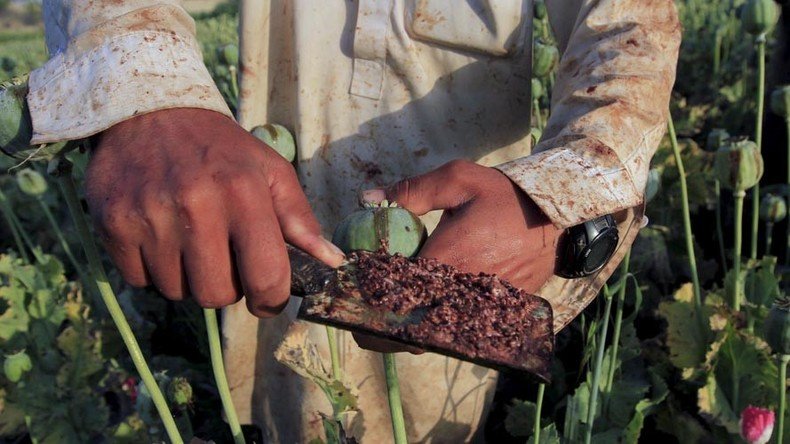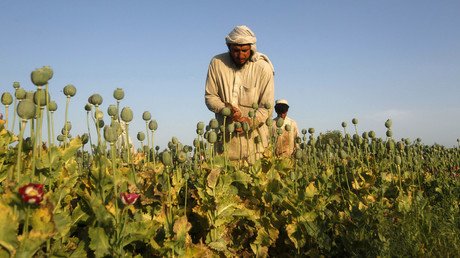Afghan opium production up 43 percent in 1 year as eradication effort fails – UN

Opium production in Afghanistan has increased by a whopping 43 percent over the last year, according to the latest figures from a UN report.
Over 4,800 tons of opium were produced this year, compared to 3,300 tons in 2015, a newly-released report by the United Nations Office on Drugs and Crime revealed on Sunday. Meanwhile, the total area under poppy cultivation grew 10 percent to 201,000 hectares. Eradication efforts, on the other hand, fell by an incredible 91 percent.
“It is very disturbing to see a considerable increase in poppy cultivation in the north which may be linked with a deteriorating security situation in the region,” AP quoted Andrey Avetisyan, head of the UNODC in Afghanistan, as saying in a statement.
The report mentions that launching eradication operations has been difficult due to logistical challenges and the presence of the Taliban, who protect opium crops to fund their insurgency.
But the growth in opium production is due not only to increased cultivation but also a greater yield of product per hectare. In the western and southern regions, which are responsible for 84 percent of the total output, yields grew from around 16 to 22 kilos per hectare, a 46 percent increase.
“The survey shows a worrying reversal in efforts to combat the persistent problem of illicit drugs and their impact on development, health and security,” UNODC Executive Director Yury Fedotov said in a statement.
“They indicate the scale of the threat confronted by Afghanistan and the international community. But it is worth acknowledging that Afghanistan is also arguably the first of the many victims of this destructive drug. Afghanistan suffers devastating levels of drug addiction; heightened instability and insecurity, and weakened development due to the impact of illicit drugs.”
“Local law enforcement efforts are often conducted against the backdrop of a bitter and violent insurgency that stubbornly endures and hinders progress. For all these reasons, never has the concept of shared responsibility been so important, or more desperately needed for a drug producing country.”













